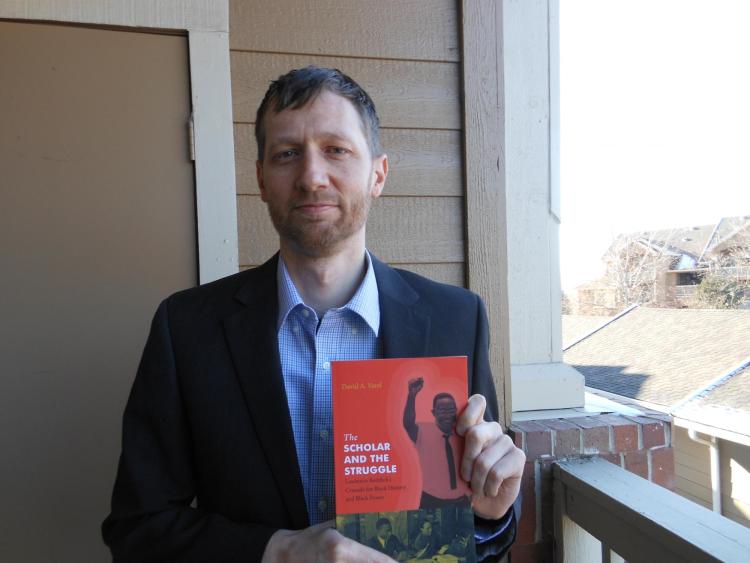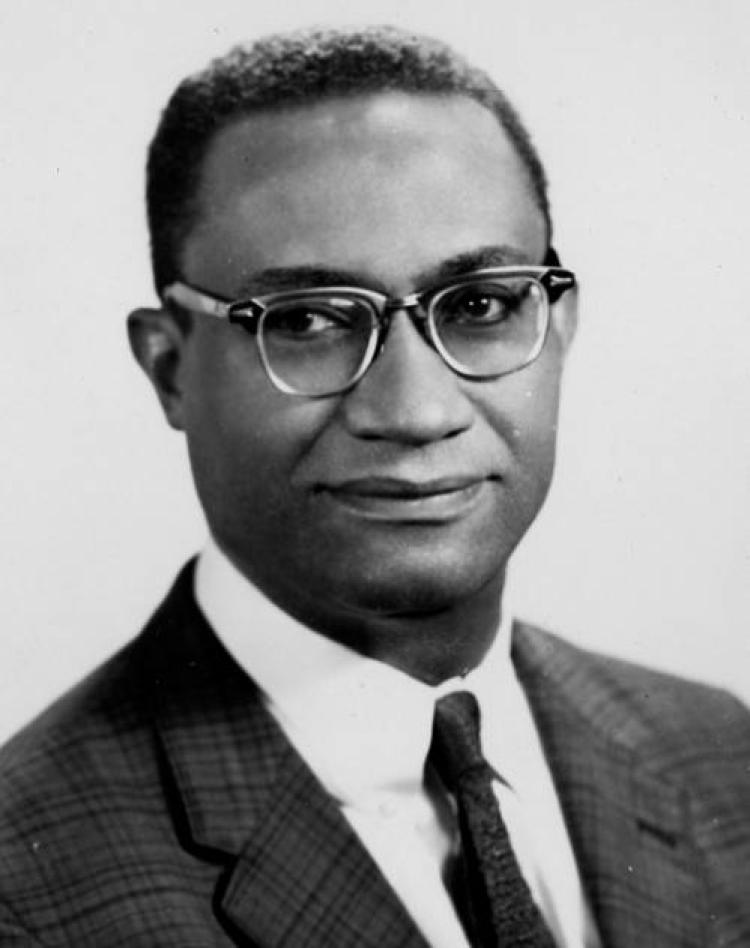A question of honor makes history
CU Boulder history graduate inspires removal of ‘Lost Cause’ scholar’s name from prestigious Civil War book award
After months of waiting, David Varel was thrilled to see his article, “Those We Honor, and Those We Don’t: The Case for Renaming an OAH Book Award,” published in the December 2020 issue of The American Historian.
In the piece, the 2015 University of Colorado Boulder PhD graduate of history argues that the prestigious Organization of American Historians (OAH) should remove the name of prominent 20th-century historian and former OAH president Avery O. Craven from its annual award for most original book on the Civil War or Reconstruction.
Craven, Varel writes, was a lifelong promoter of the “Lost Cause” version of Civil War history that blamed northern abolitionists for the war and claimed that “‘slavery was not a major economic factor in Southern life’ and was ‘almost ready to break down of its own weight.’”
Rather than honor a historian associated with such now discredited views, Varel suggested that the OAH rechristen the award in honor of Lawrence D. Reddick, a Black scholar and former student of Craven’s whose research undermined the “Lost Cause” narrative. The change, he wrote, would “better honor the OAH’s professed commitment to ‘the equitable treatment of all practitioners of history.’”

At the top of the page: Civil war cavalry fight at Yellow Tavern, near Richmond, VA. May 11, 1864 (Wikimedia Commons). Above: David Varel
“Craven had a nice, long run,” concluded Varel, an independent scholar and affiliate faculty member at Metropolitan State University of Denver. “Now let’s honor a figure more worthy of our admiration.”
He knew he’d made a good case, but he was shocked and thrilled when he read a brief announcement that followed his piece: The OAH board had decided at its July meeting “to suspend the name of the Avery Craven Award … as a result of consideration of a powerful article … that laid out the argument for renaming the award.”
That powerful article was Varel’s.
“I had no idea,” says Varel, who recently published The Scholar and the Struggle: Lawrence Reddick’s Crusade for Black History and Black Power. “I got word that it had been accepted in the summer, but I didn’t know until December that the board had made that decision.”
“His article really did prompt the board to think about how prizes are named and to revise its policies,” says Beth English, who took the reins as executive director of the OAH after the July decision. “That’s a significant contribution.”
Besides suspending the use of Craven’s name, the board appointed a committee that wrote new guidelines for establishing and naming prizes, English says. In the future, all named OAH awards must have $50,000 in funding to ensure financial viability, and all requests to create named prizes will be investigated by a committee to ensure the person is up to the organization’s standards, and must be approved by the board.
“These honors have real consequences for how an organization honors or dishonors its past and invokes its priorities for those in the present and the future,” the board advisory said.
Varel, who specializes in the history of African American scholar-activists, had never heard of Craven or Reddick until researching his dissertation, which has since been published as The Lost Black Scholar: Resurrecting Allison Davis in American Social Thought.
Craven had a nice, long run. ... Now let’s honor a figure more worthy of our admiration.”
“Craven wasn’t some lone individual in his views. His stature through the mid-20th century shows how the ‘lost cause’ narrative dominated even professional history for a long time,” Varel says. “His career is a case study in just how racist and exclusionary the mainstream history profession was.”
But it was Reddick who really intrigued him.
“He was a very talented Black scholar who couldn’t get jobs in the predominately white universities,” he says. “He was fascinating, worthy of a biography of his own.”
After earning his bachelor’s and master’s degrees from Fisk University, Reddick taught at various colleges and worked as a librarian. In the 1930s, he collected and worked with the Works Progress Administration to systematically compile testimony from former slaves—research that transformed the study of slavery and helped unravel narratives like those espoused by Craven, Varel says.
Later in life, Reddick was part of the famous Montgomery Bus Boycott of the 1950s, helped establish the Southern Christian Leadership Conference and became a close adviser to Martin Luther King Jr.

Lawrence D. Reddick
And, as a PhD student at the University of Chicago, Reddick directly challenged his adviser Craven, who once told a class, “You know, there is a remarkable parallel between the history of the Negro and the history of the mule.”
“Dr. A. O. Craven, leading authority on all aspects of Southern History, was lecturing the other day on the ‘Crime of Reconstruction’—his very phrase. Well, after I had stood about 30 minutes of the wrongs done the ‘Southern People’ by carpet baggers, scalawags and Negroes, I took advantage of a pause to ask: ‘Would it be scientific to consider the scalawags and Negroes as ‘Southern People’?’” Reddick wrote in 1937 to Carter Woodson, editor of the Journal of Negro History.
“He tried to stammer out some sort of an explanation. I did not push the point. I kept thinking of a bull in the bull fight reeling over the arena with the hilt buried in his head. The lecture was ruined. … Altogether it is hopeful when such simple questions can bring down such high ‘authority.’”
Reddick’s 1965 book Worth Fighting For, written for younger people, explored the role of African American people in both the Civil War and Reconstruction, facts that “Craven proved either unable or unwilling to accept,” Varel writes.
The article, Varel says, was not just “a great way for me to show that this guy’s name really shouldn’t be on the award,” but also gave him the opportunity to showcase a more deserving scholar.
For now, the OAH website is soliciting submissions for the Civil War and Reconstruction Book Award. English says the process to officially rename the award has not yet begun. Whether the board chooses to honor Reddick remains to be seen.
“Whether or not the suggested name (Reddick) put forward will end up being chosen, I can’t say. The name would go through this process to consider his scholarship, contributions to the field and other long-lasting ramifications,” English says.
Whatever the eventual name of the award, Varel sees the board’s response as powerful evidence that the work of historians can make a difference.
“They did exactly what my article called for,” he says. “It feels like my work had a direct impact on the world.”

